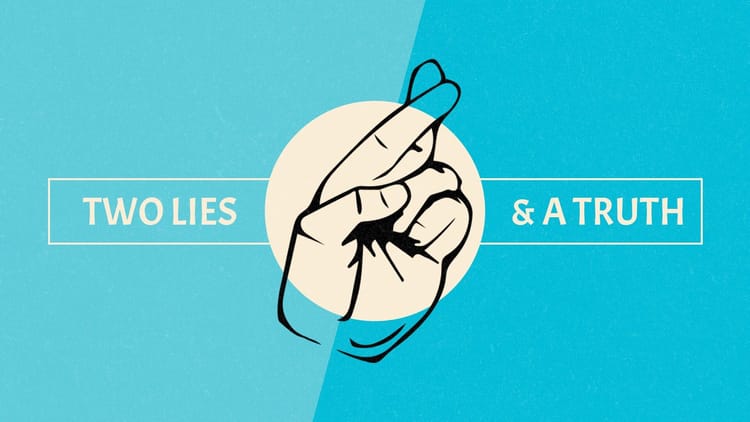The Bible, Church, and Homosexuality (1 Corinthians 6:9-11)

Big Idea: Everyone needs God’s grace, and God washes, sanctifies, and justifies all kinds of sinners like us.
I was preaching in a church in Toronto recently. I was about to quote the passage that was just read for us:
Or do you not know that the unrighteous will not inherit the kingdom of God? Do not be deceived: neither the sexually immoral, nor idolaters, nor adulterers, nor men who practice homosexuality, nor thieves, nor the greedy, nor drunkards, nor revilers, nor swindlers will inherit the kingdom of God. (1 Corinthians 6:9-10)
But I stopped. Partway through reading the list, I realized a couple of things. First: that a same-sex couple were sitting in the church. Second: that I’m a guest in that church, and I didn’t want to set off any landmines for the pastor of that church.
And that’s where we are today. We can’t do a series on sex without asking some tough questions, including the obvious. What does the Bible say about homosexuality? What does the Bible say? What do we say?
I know you’re aware of the shift that’s taken place in our culture over the past few decades. I’m sure you’re also aware of the shifts that are taking place in churches as they wrestle with their position. It’s hard to read a passage like the one that we just read without realizing that it seems horribly out of step with our times.
So today, I want to look honestly and respectfully at this. I want to keep it as simple and clear as possible and ask just two questions. What does the Bible say about our LGBT friends? What should the church’s attitude be towards our LGBT friends?
What does the Bible say about homosexuality?
So first: what does the Bible say about our LGBT friends? We could spend a lot of time on this, but I will try to stay pretty high level. There are two popular views that are out there today:
First, some believe that the Bible only speaks against some kinds of homosexuality. For instance, Matthew Vines argues that the Bible speaks against uncommitted homosexual relationships. So, in other words, the Bible isn’t against loving, committed same-sex relationships.
Second, others believe that the Bible is against all kinds of same-sex relationships. This includes committed ones.
Which one is correct?
I want to say, before we answer this question, that it’s always important to approach this and every issue in the Bible with the right attitude. I know that I’m sometimes tempted to go to the Bible hoping that it will say what I think. But that is not intellectually honest. We need to let Scripture speak for itself. As Christians, we believe that when Scripture clashes with our desires and beliefs, it’s not Scripture that should change. We should change, because Scripture is God’s Word. It trumps us every time.
As someone has said, “Our feelings matter. Our stories matter. Our friends matter” (Kevin DeYoung). But Scripture, not our feelings or stories, has the final word in the end.
I have friends who argue for both the positions I mentioned. But if we’re asking what the Bible says, then I would argue that the second position is correct. In the passage we just read, for instance, Paul uses two Greek words: malakos, which means soft, or the more effeminate partner in a male-male relationship. It can refer to a prostitute. The other word is arsenokoitai, which can refer to the more dominant partner, or just as a broad term for a male homosexual.
This, of course, is only one text out of about sex key texts (Genesis 19; Leviticus 18:22 and 20:13; Romans 1:26-27; 1 Corinthians 6:9; 1 Timothy 1:10) that need to be considered. We don’t have time to look at all of them today. I encourage you to look at them, and to read books on both sides of the issue. Don’t take my word for it! Take the Bible seriously. rather than what I have to say, not just on this issue, but every issue.
I appreciate the honesty of Luke Timothy Johnson, a pro-gay advocate, when he says:
The task demands intellectual honesty. I have little patience with efforts to make Scripture say something other than what it says, through appeals to linguistic or cultural subtleties. The exegetical situation is straightforward: we know what the text says.
He concedes the Scriptural argument and appeals to his own experience as a greater authority than Scripture. But as I said earlier: Scripture has to have the final word, not just on this issue, but every issue.
I also agree with Rosaria Butterfield, who was a tenured professor at Syracuse University, identified as a lesbian, active in the LGBT community, and on her way to work in the field of Queer theory. She became friends with a Christian pastor, and began to read the Bible as a piece of literature. As an English professor, she had a high respect for the text. As someone with Ph.D., she was ably prepared to know what a book says, to assess the integrity of its textual history and canonicity, and to make a call about its authority. She found that it both encouraged her and enraged her. She also realized the danger of textual revisionism, of disregarding texts within the text. It made her wonder if some people would benefit from attending her Queer Theory class so that they would better understand how to read the Bible with integrity.
She didn’t always like what she read, but the Bible began to transform her. She realized that the Bible did talk about homosexuality as a sin. But she also realized that it’s not the end-point of sin. It’s not the root of all sin, or even the root of her sin. The real problem — and one that goes beyond any sexual categories of sin — is that we refuse to give God glory for creating us. She tried to throw the Bible in the trash, but couldn’t.
She realized that the key issue isn’t whether we’re LGBT or straight or anything else. The real problem is that we’re proud, and that we want to be autonomous rather than submissive to God. She couldn’t yet repent of being a lesbian, because she still didn’t understand why it was wrong. But she realized that she could sure repent of being proud, and that’s exactly where she began.
She never did get a blinding flash of insight from the Holy Spirit that told her why homosexuality is a sin. It didn’t work like that. Here’s what happened:
The sinfulness of sin unfolded for me in the authority of the Bible, the growing sweetness with my union with Christ, and the slow sanctification of the mind that this births. At a certain point in life, I knew that I had to turn over the wheel to God. A little like an Alzheimer’s patient, who in a flashing moment of mental lucidity signs over his rights to his able-minded caregiver, a believer signs over her rights of interpretation to the God of the Bible. Lesbian sexuality did not feel unnatural. It occurred to me that I don’t have to feel it to believe it…
This was a spiritual awakening that opened me up to Scripture and to the Lord himself in a startling new way. My feelings were not proof that I didn’t measure up. My journey into repentance was proof that I was one of God’s own, one of the lost sheep, and he was leading me and guiding me and protecting me and comforting me.
Her story is instructive for a few reasons.
First: It teaches us to read the Bible on its own terms, rather than our terms. This applies to all of us on all kinds of issues other than the one we’re talking about. This is something that doesn’t come easy to any of us.
Second: it shows us that the real issue isn’t whether we’re gay or straight. The real issue is whether we’re willing to surrender before God. The real issue is our pride. Again, this is our root problem, no matter whether we’re straight, gay, or whatever. In fact, the purpose of one of the key texts (Romans 1) isn’t to condemn gay people. It’s to condemn all people. We all need God’s grace.
Third: It shows that God is gracious. When you look at the list of sins in the passage that we just read, you realize that we’re all sinners. It’s not just gay people who need grace. Everyone needs God’s grace. And God is more than willing to give anyone grace who wants it.
What should the church’s attitude be towards our LGBT friends?
So far we’ve looked at what the Bible says about homosexuality. I’ve argued that it identifies same-sex activity as sinful, even though that may rub us the wrong way. But we’ve also seen that it’s not our root problem. All of us have a much deeper issue. All of us need God’s grace. Our real issue is that we are proud, and refuse to give God glory for creating us.
I want to shift and ask what our attitude should be towards our LGBT friends. And I want to make three quick points, and then close.
First, let’s stand against all kinds of hate and bullying. Here we can actually find a lot of common ground. Homophobia has no place in our culture, and we can all agree to stand against it. Whenever we don’t treat another person with the dignity they deserve as someone made in the image of God, we dishonor God and compromise our Christian witness.
My friend Stan Fowler argues that what we really need is something he calls principled pluralism. This means that we should work towards a society in which we practicing homosexuals and those who consider it a moral issue can coexist with mutual respect and civility, while we recognize a serious difference of opinion. I agree. We need to stand against anything but respect and civility. We need to defend the rights of others, including our LGBT friends.
Second, let’s never forget that we’re talking about people, not just an issue. A recent book title captures it well. It’s called People to Be Loved: Why Homosexuality Is Not Just an Issue. He puts it well: “What would happen if Christians were known more by their radical, otherworldly love for gay people than their stance against gay sex?”
Rosaria Butterfield, the professor I mentioned earlier, speaks highly of the friendship she developed with a pastor. It was a friendship without an agenda. It was just a friendship.
I met a most unlikely friend: a Christian pastor. Had a pastor named Ken Smith not shared the gospel with me for years and years, over and over again, not in some used-carsalesman way, but in an organic, spontaneous and compassionate way, those questions might still be lodged in the crevices of my mind and I might never have met the most unlikely of friends, Jesus Christ himself.
I like that. Let’s learn to love our neighbors. It’s a really good place to begin.
Finally, let’s remember that the real issue for any of us is Jesus. I hate to keep quoting Rosaria Butterfield, but what she writes is so good:
It is not the absence of sin that makes you a believer. It is the presence of Christ in the midst of your struggle that commends the believer and sets you apart in the world. (Openness Unhindered)
I like that. The real issue for us isn’t about whether we’re perfect or not. The real issue is the presence of Jesus in our lives. It’s whether we’ve come and encountered the grace that we all desperately need.
Our ultimate identity isn’t whether we’re gay or straight. Our ultimate identity is who we are in Jesus. As one man writes:
My sexual orientation didn’t have to be the core of who I was. My primary identity didn’t have to be defined by my feelings or sexual attractions. My identity was not “gay” or “homosexual,” or even “heterosexual,” for that matter. But my identity as a child of the living God must be in Jesus Christ alone. (Out of a Far Country)
The great news that we proclaim is that Jesus is a friend of sinners. And that’s very good news, because that’s all of us. We all need his grace.
Going back to the passage that we read at the beginning: Paul lists all these sins, which really include all of us, and then concludes with this remarkable statement:
And such were some of you. But you were washed, you were sanctified, you were justified in the name of the Lord Jesus Christ and by the Spirit of our God. (1 Corinthians 6:11)
I love what one pastor said about this passage:
There is room for every kind of background and past sinful experience among members of Christ’s flock as we learn the way of repentance and renewed lives, for Such were some of you. But you were washed, you were sanctified, you were justified in the name of the Lord Jesus Christ and by the Spirit of our God (1 Corinthians 6: 11). This is true inclusivity.
Father, thank you for your Word. Please forgive all of us when we think we know better than you do. That’s a problem that I have, and I confess it before you today.
I pray that you would give us greater wisdom and growth in this area. Help us to learn to be submissive to your Word, and gracious to people. Help us to love our neighbors.
Most of all, I pray that we would all find our greatest identity in Jesus Christ. May we come to him, the one who welcomes all sinners, and bow before him and acknowledge him as Lord. Thank you that he gives all of us his mercy.
We worship him, and pray in his holy name. Amen.





